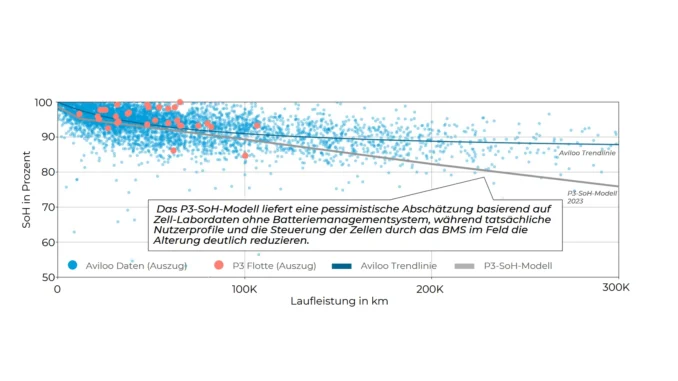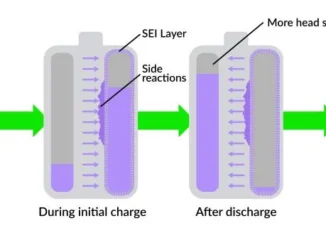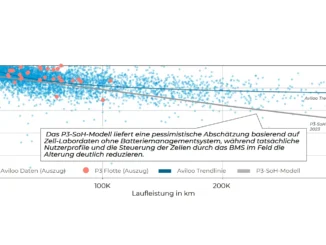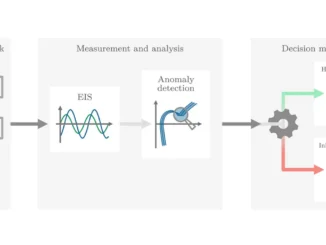
The text published by technology consultancy P3 Group summarizes the results of an analysis of battery life and vehicle residual value of battery-powered vehicles. The analysis was based on detailed data on 50 vehicles from the P3 fleet as well as data points provided by the battery diagnostics company Aviloo on more than 7,000 vehicles with up to 300,000 km of mileage. In summary, the analysis concludes that in reality, batteries age much more slowly on average than many people expect.
The study shows that electric vehicle batteries have a long service life even when used intensively. Even with mileages of over 200,000 kilometers, most batteries retain more than 80% of their original capacity and are therefore usable well beyond the usual warranty period.
The white paper presents the analysis and its results in more detail on three pages after an introduction and an explanation of some of the basics and key terms used to assess ageing, such as State of Health (SoH) and residual capacity, as well as the research method used.
The text then turns to the influencing factors responsible for calendar ageing and provides instructions on how to reduce negative effects. This is followed by a corresponding examination of cyclical ageing.
On one printed page each, the authors then examine the topics of warranty services provided by vehicle manufacturers, the secondary use of batteries and the influencing factors that determine the residual value of a battery. (jr)




